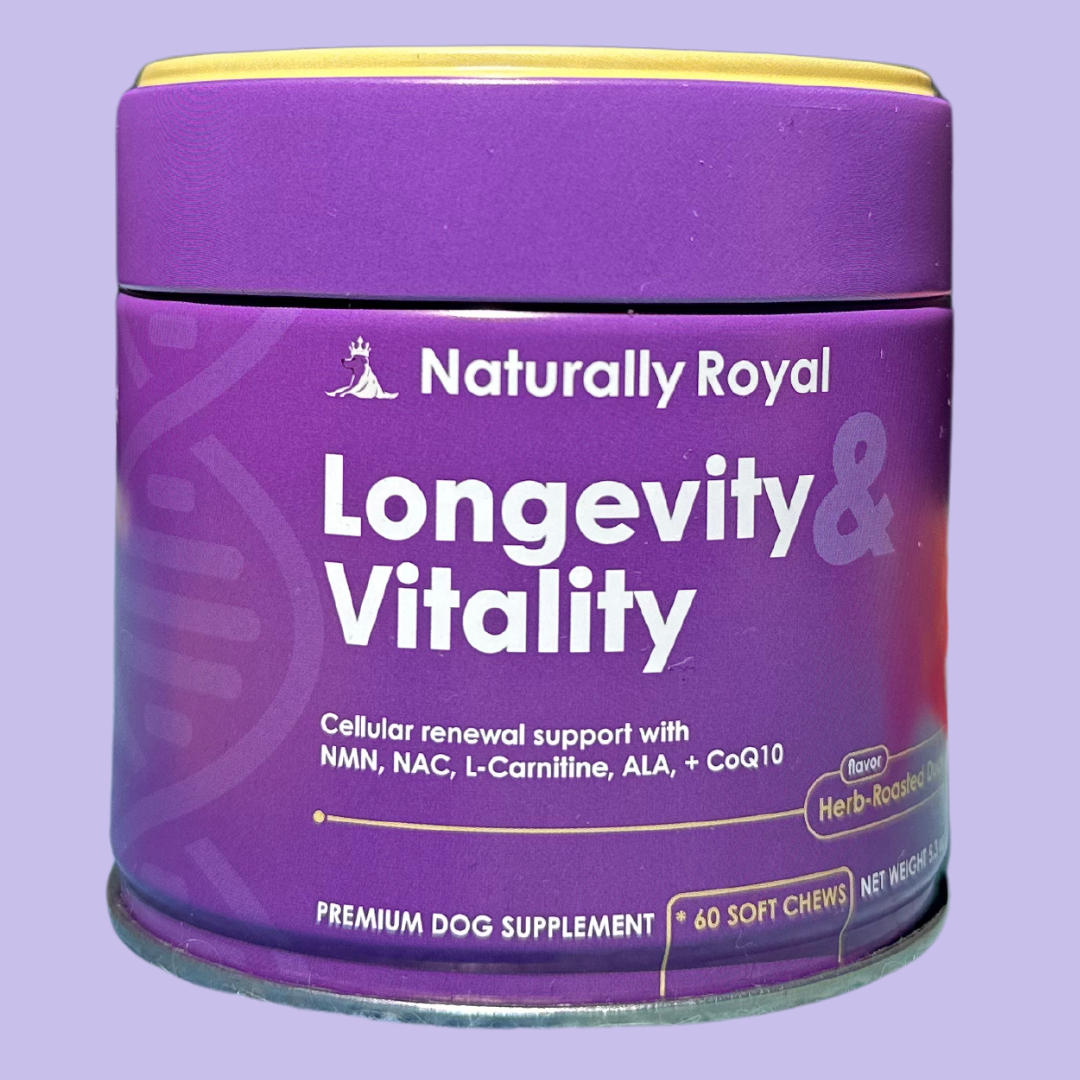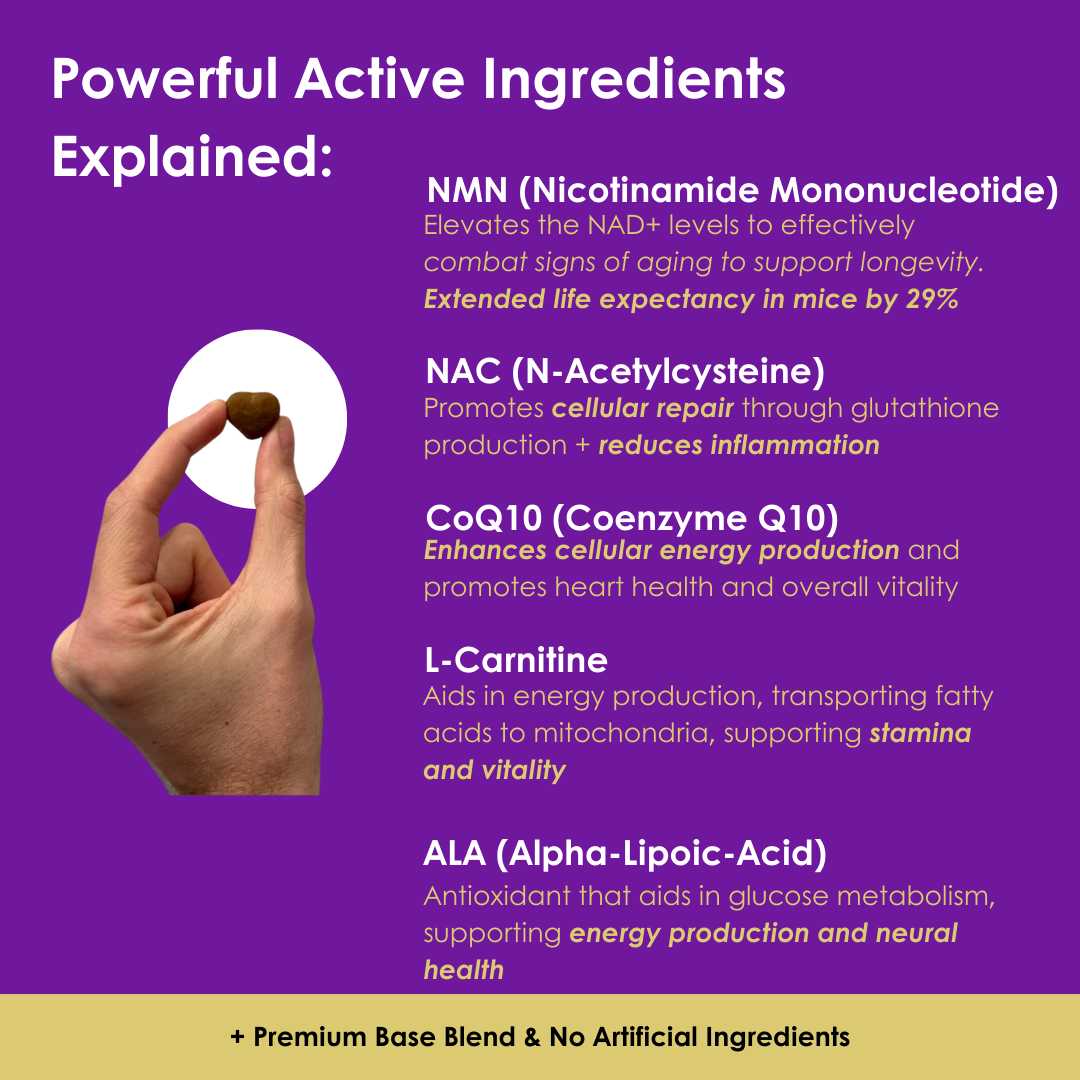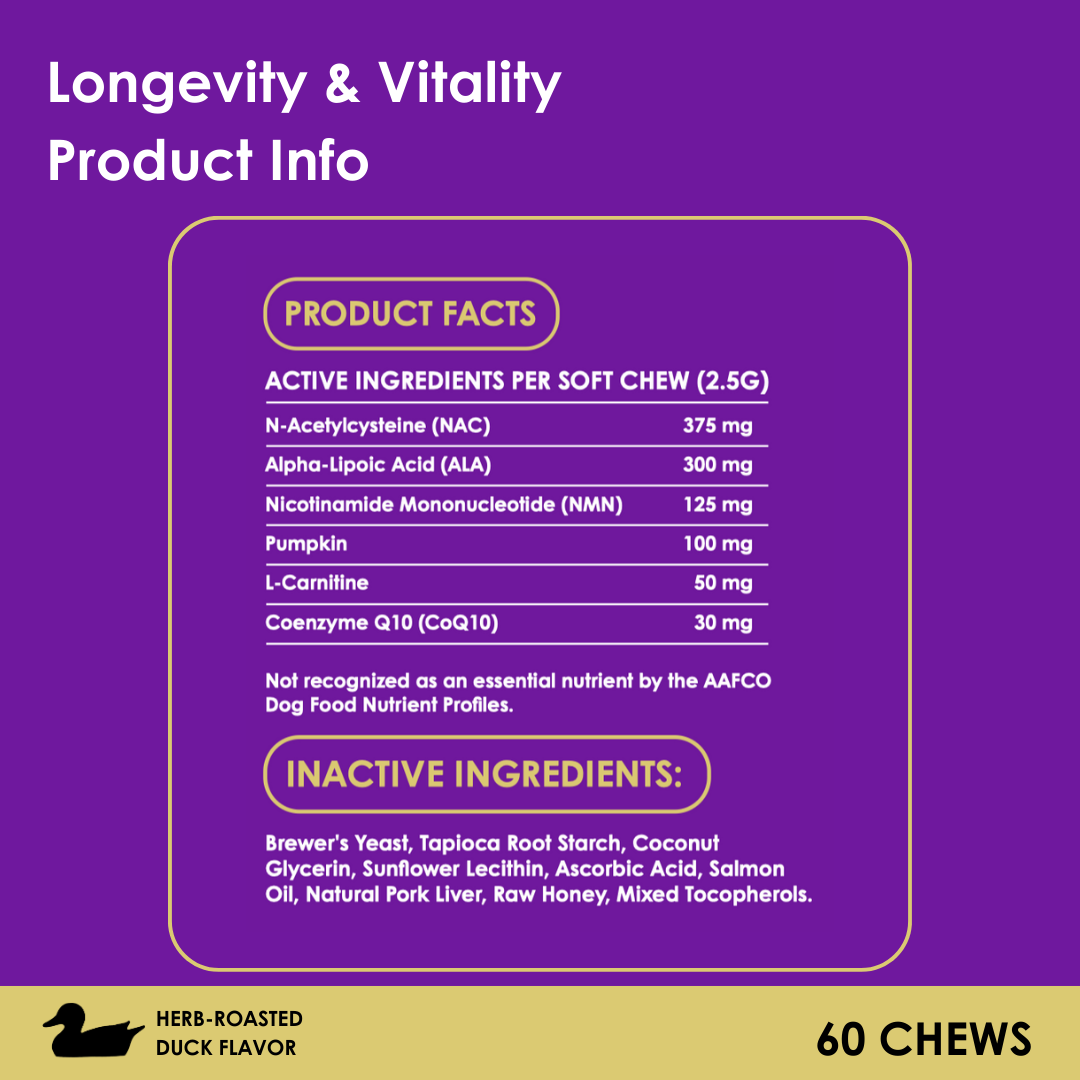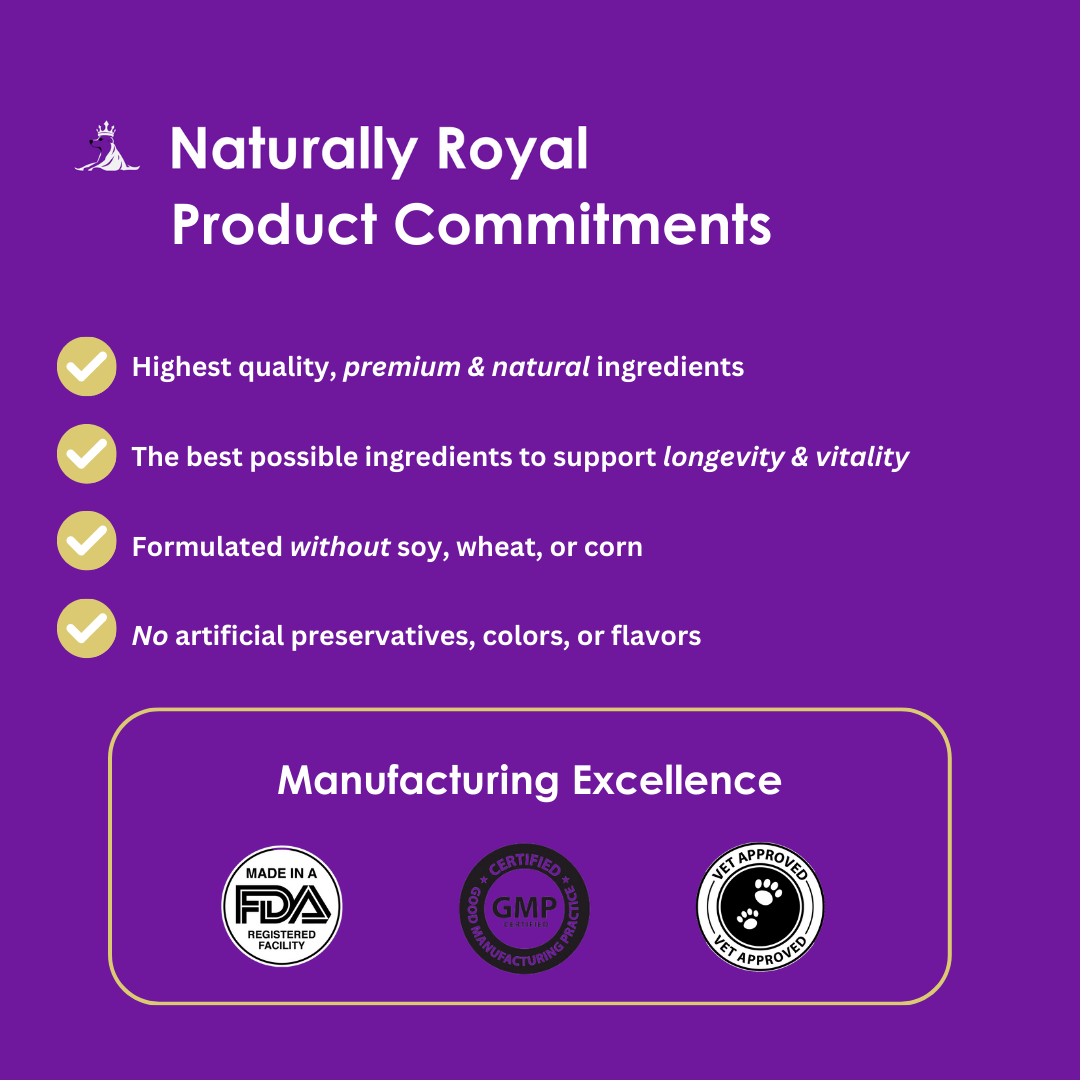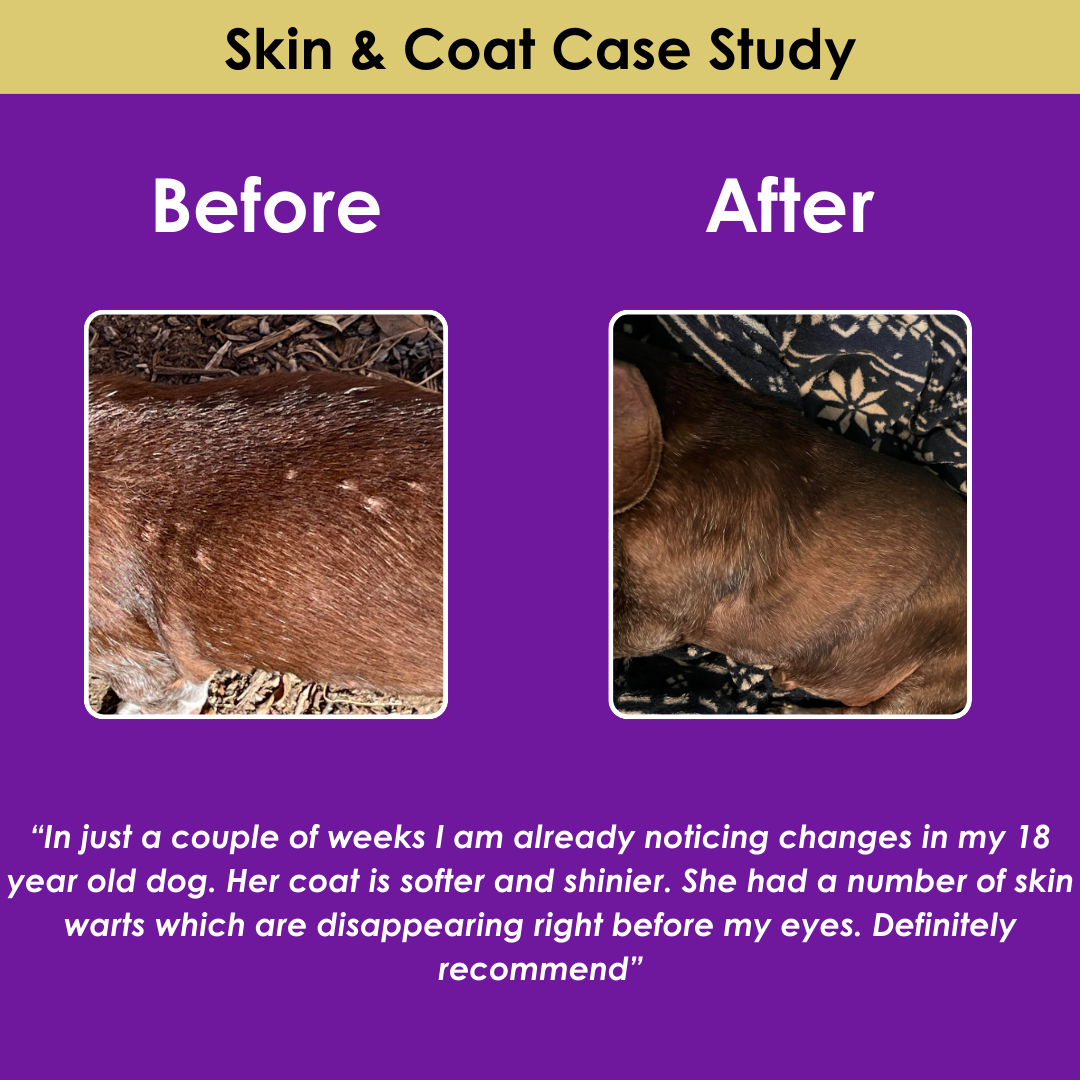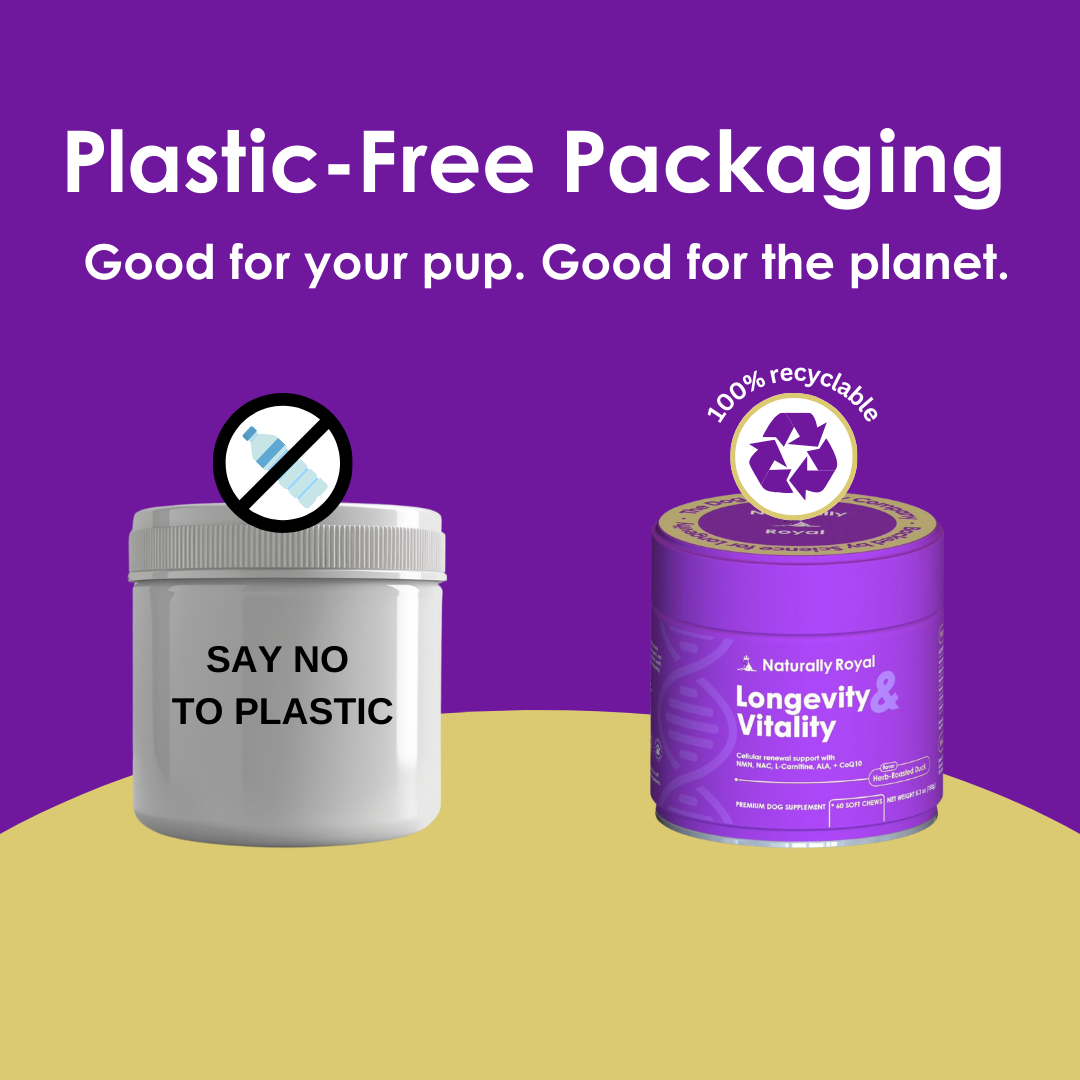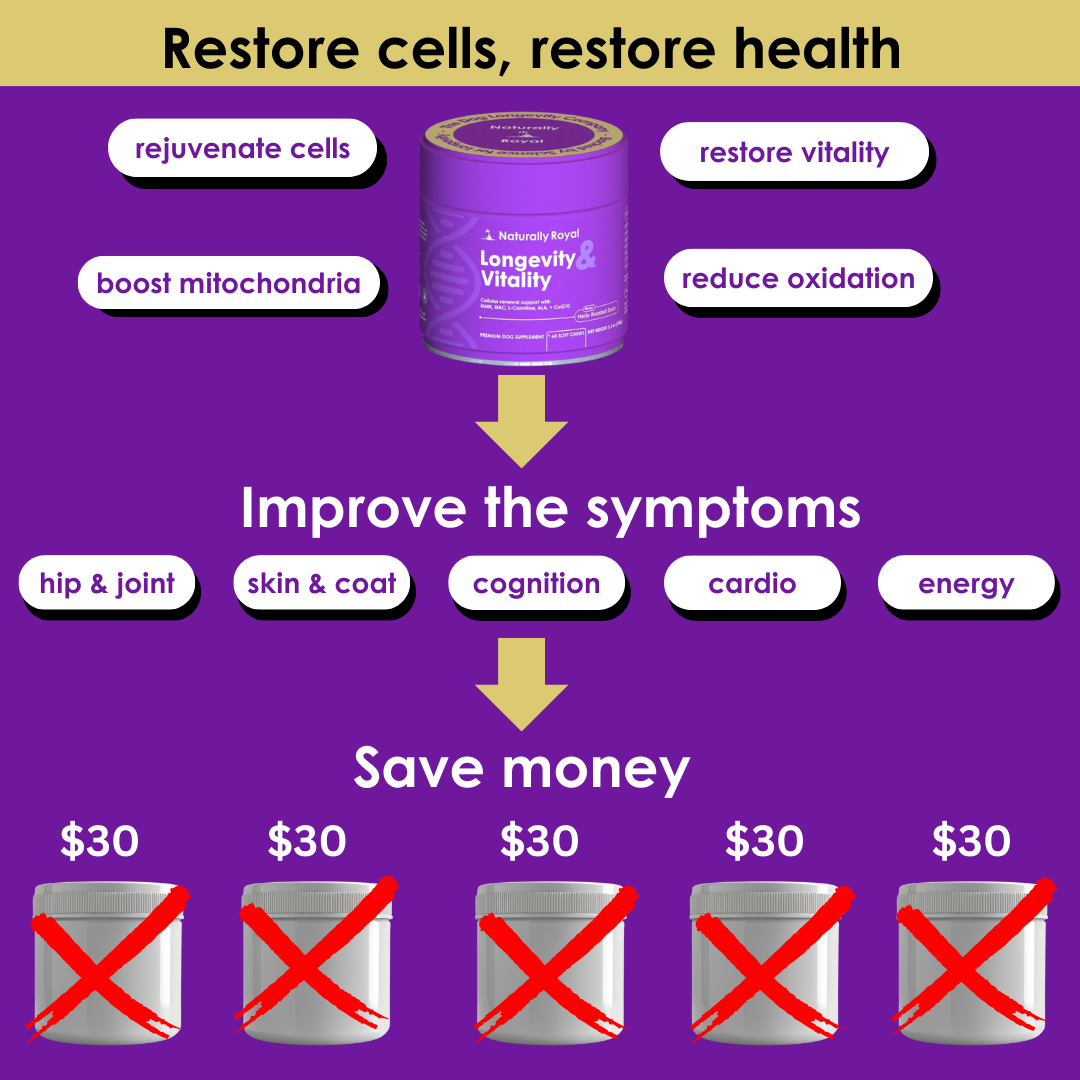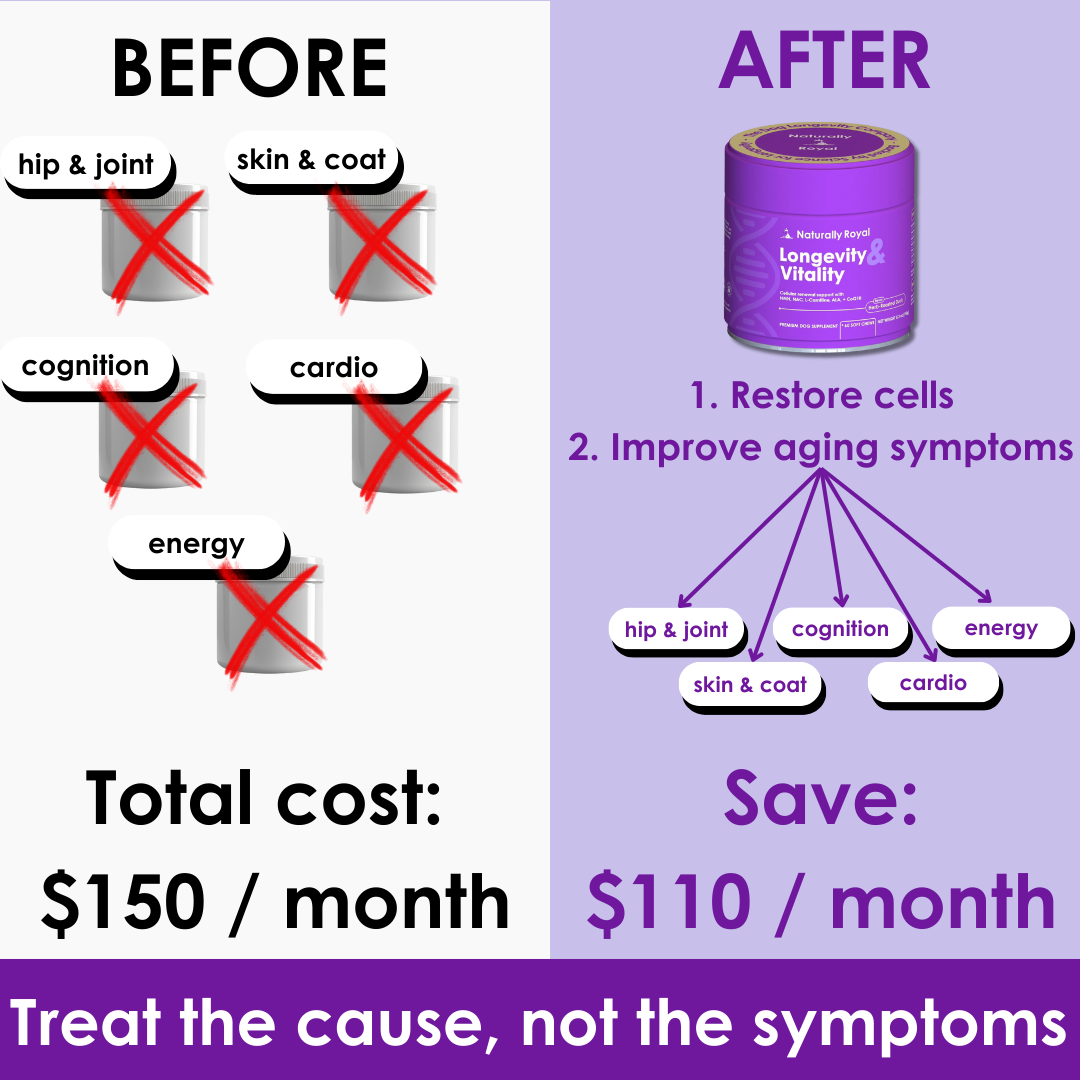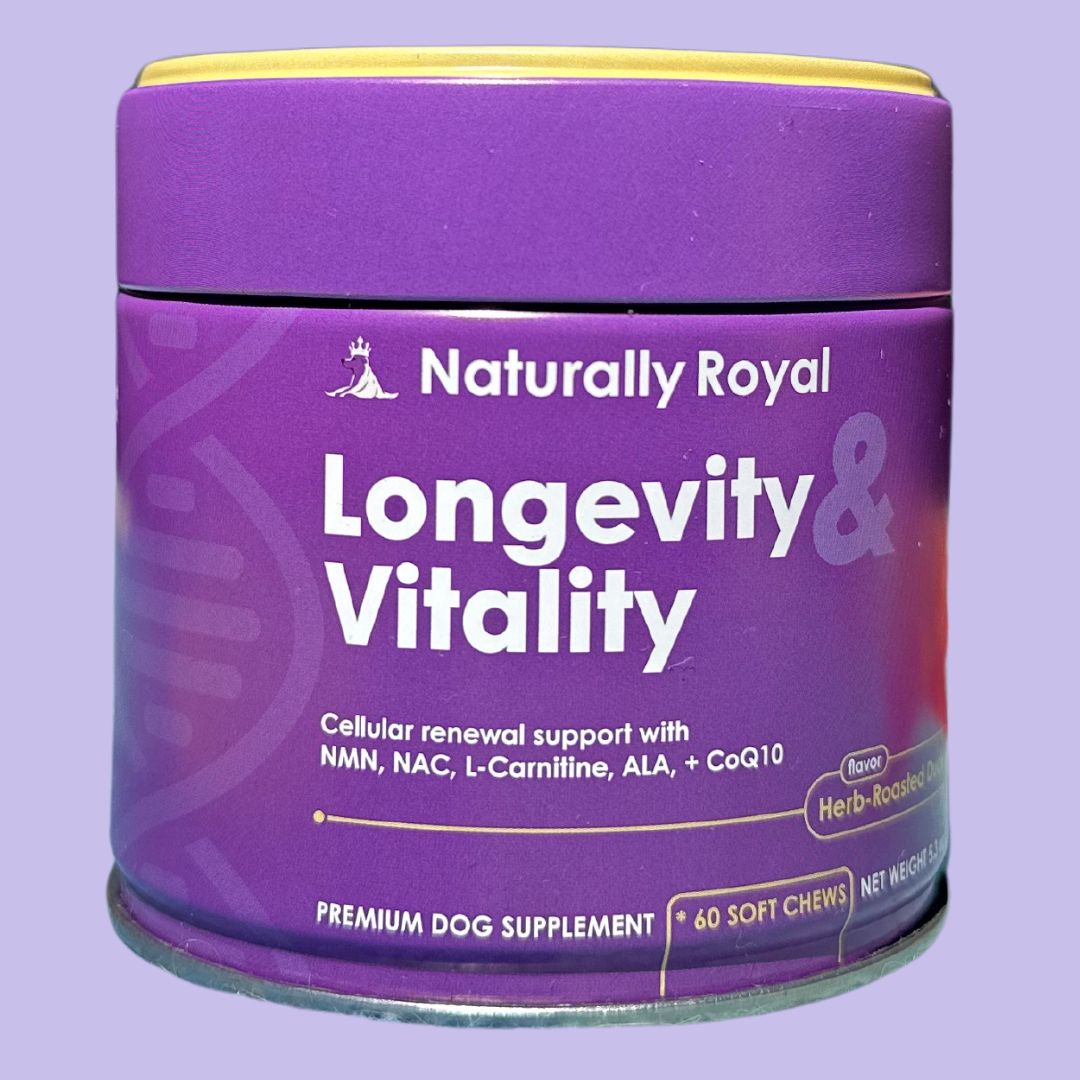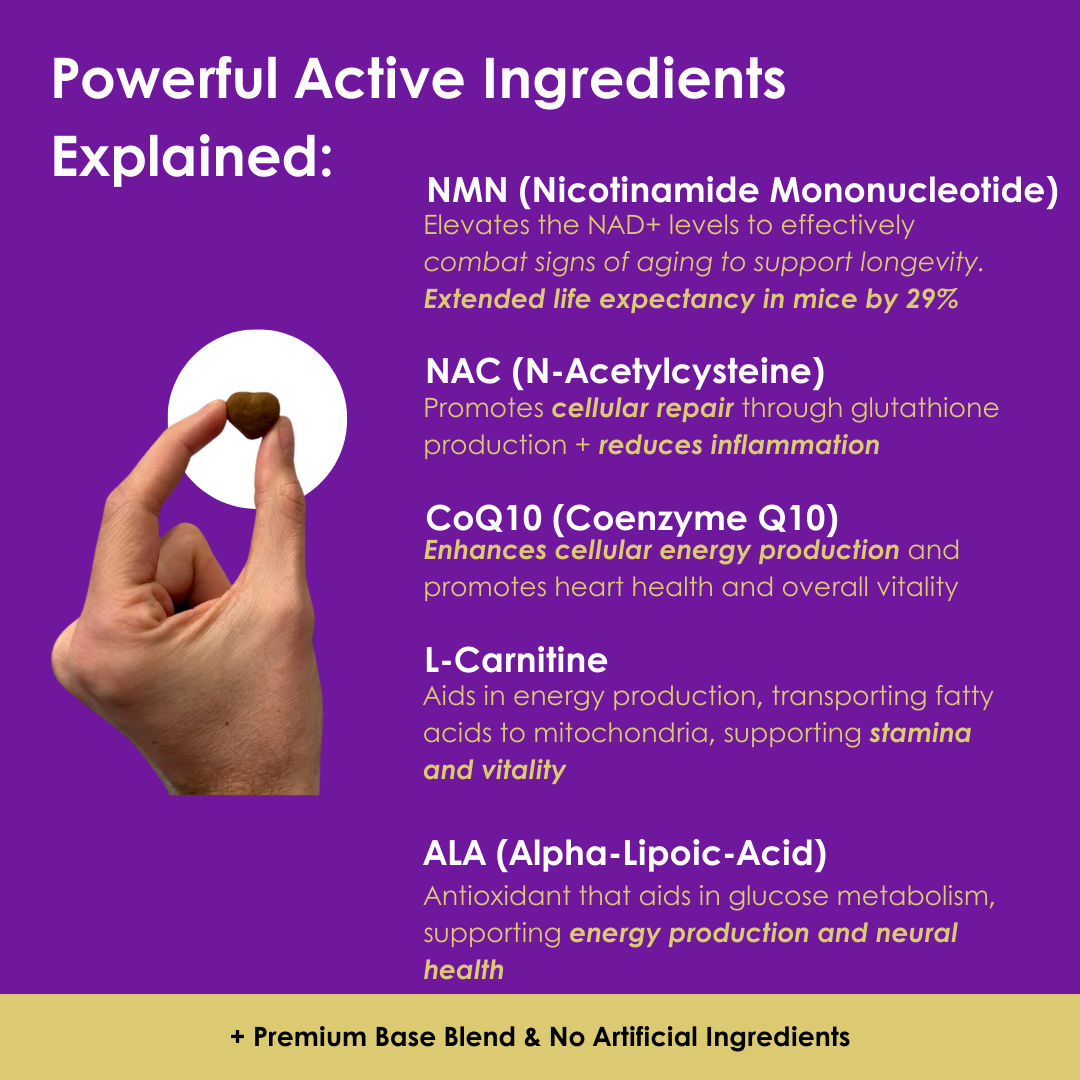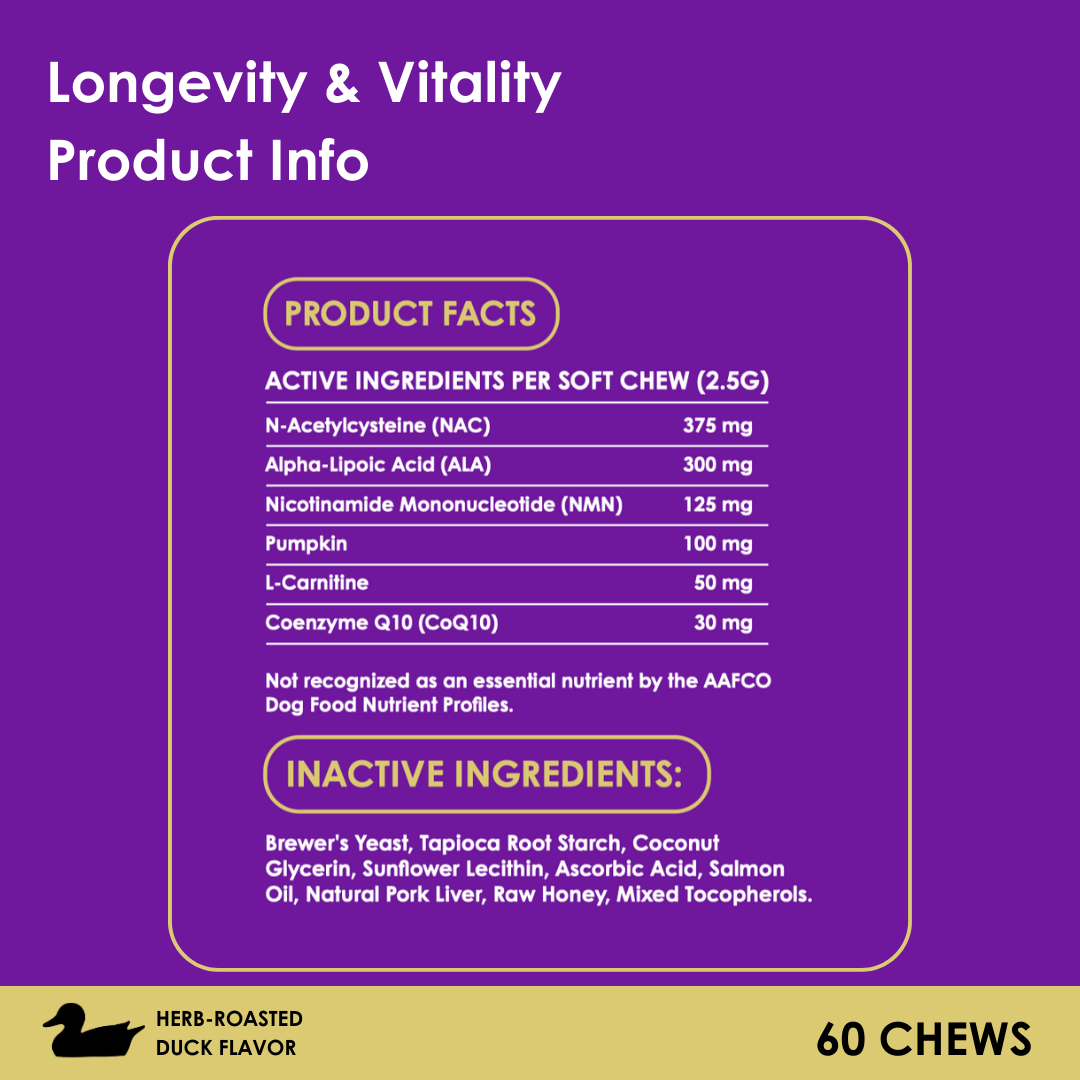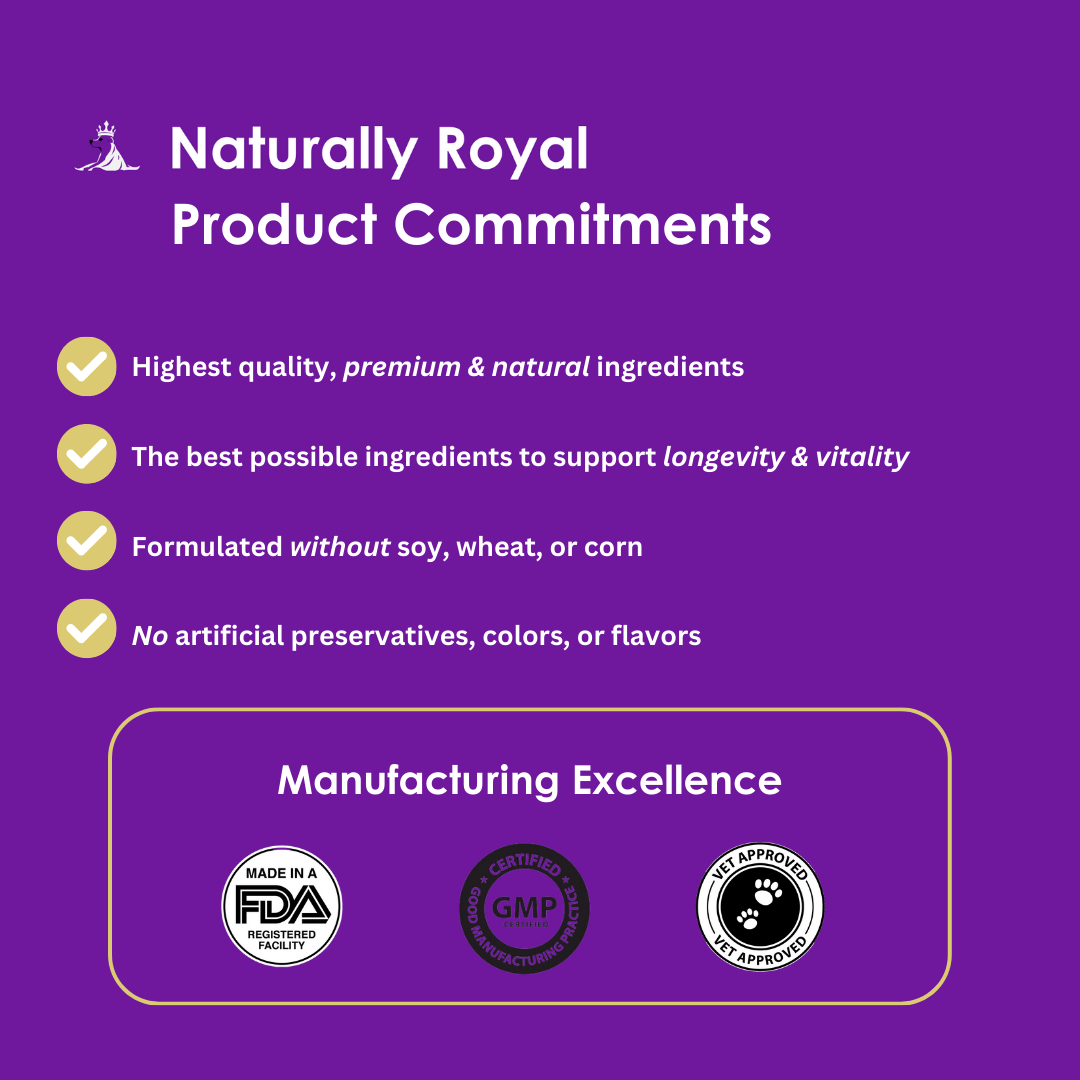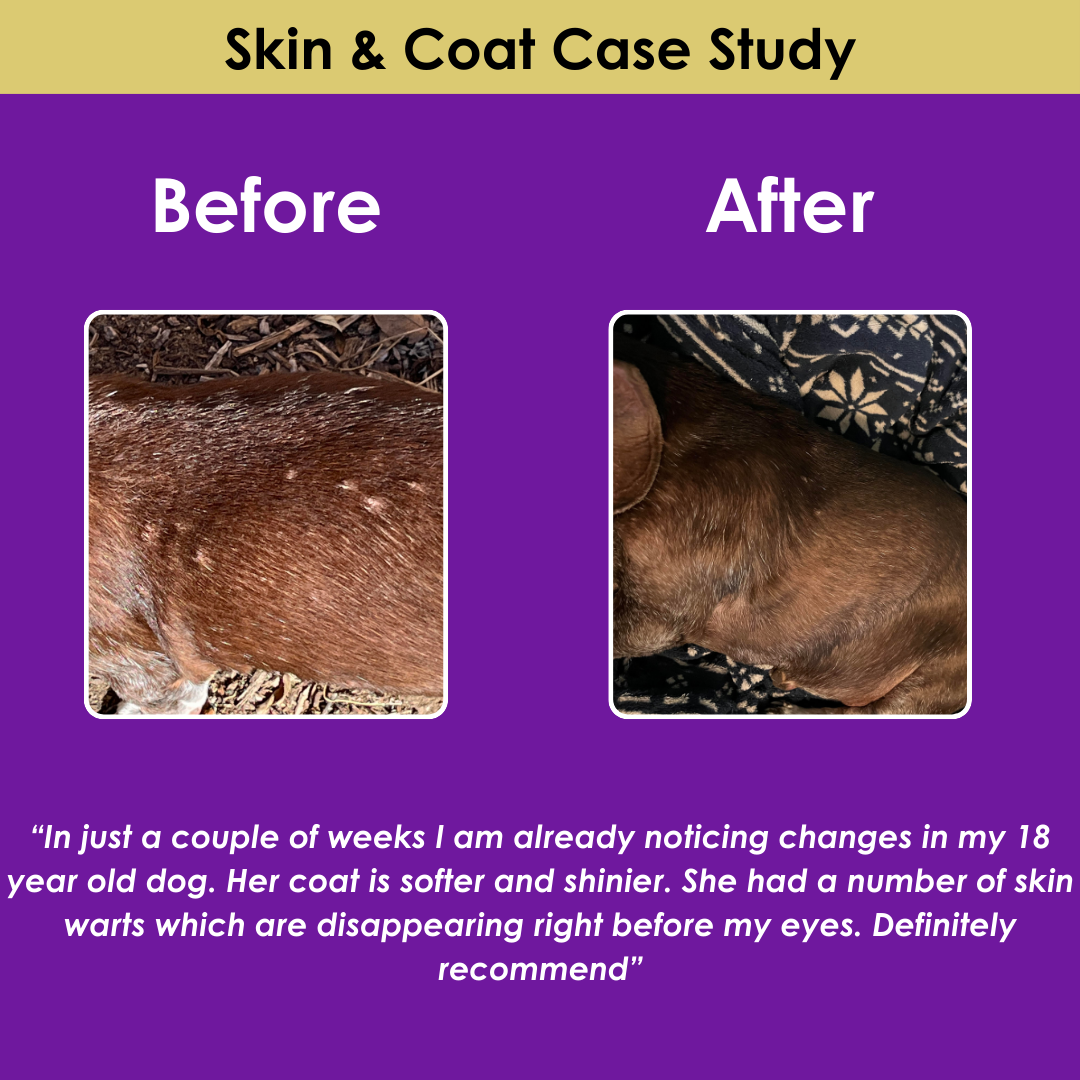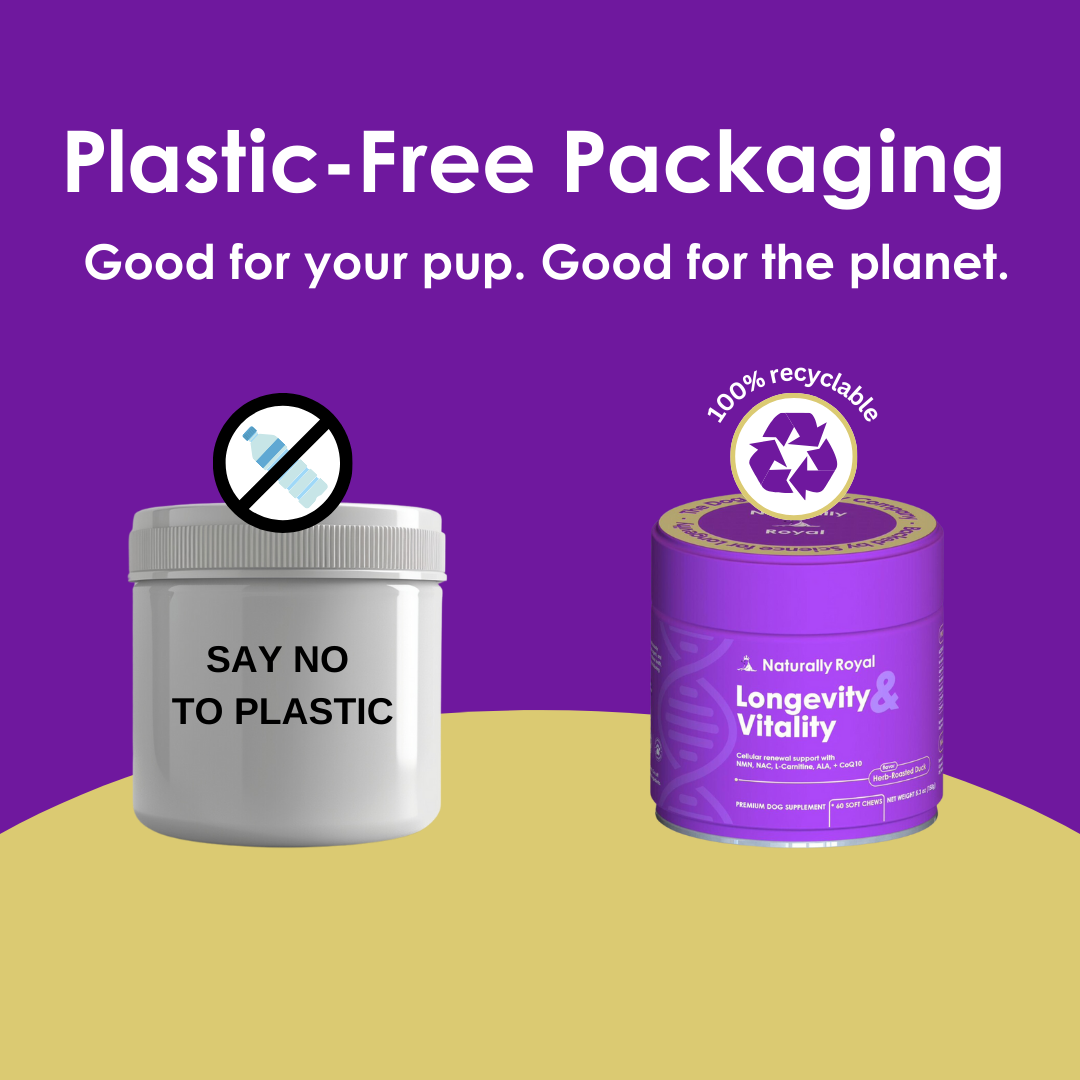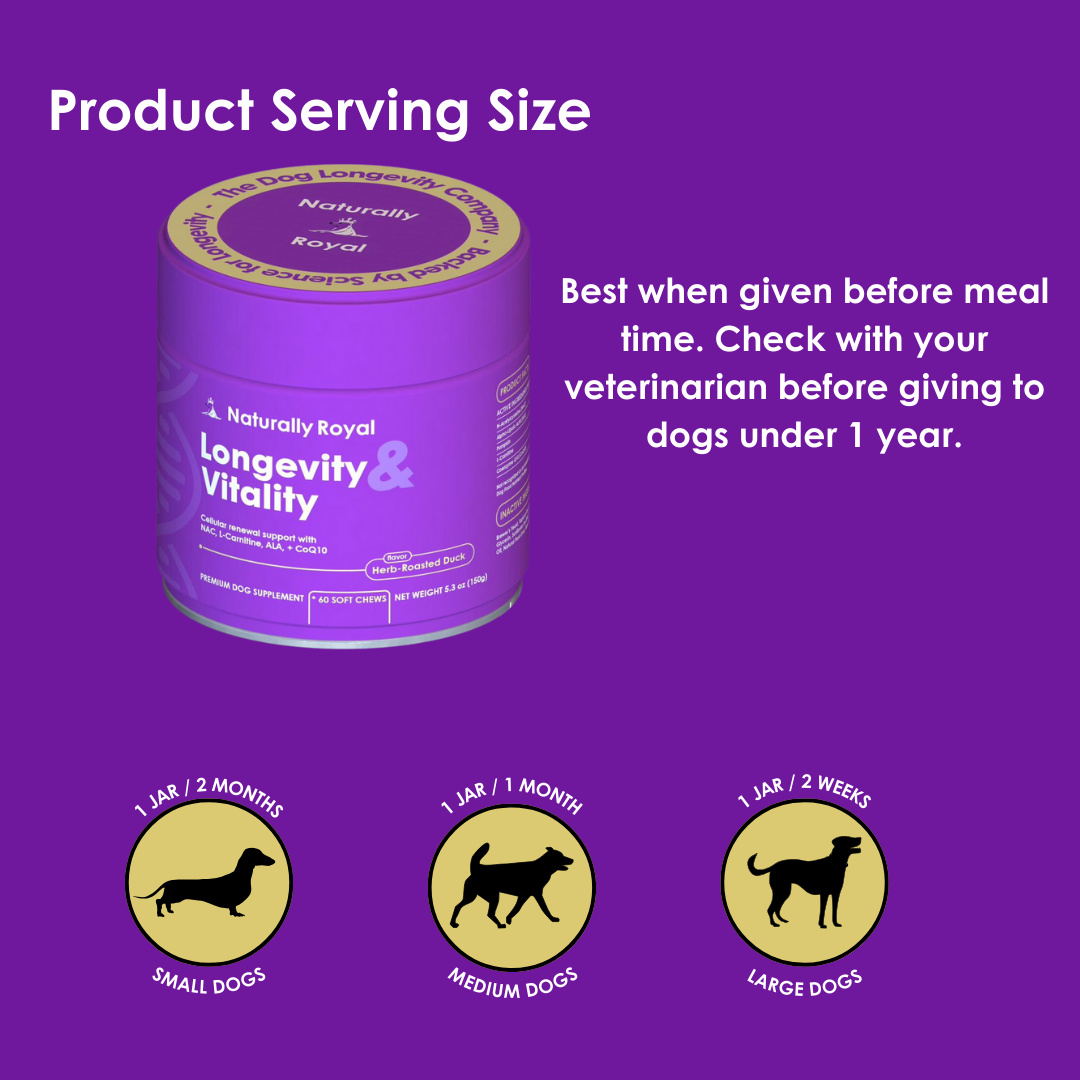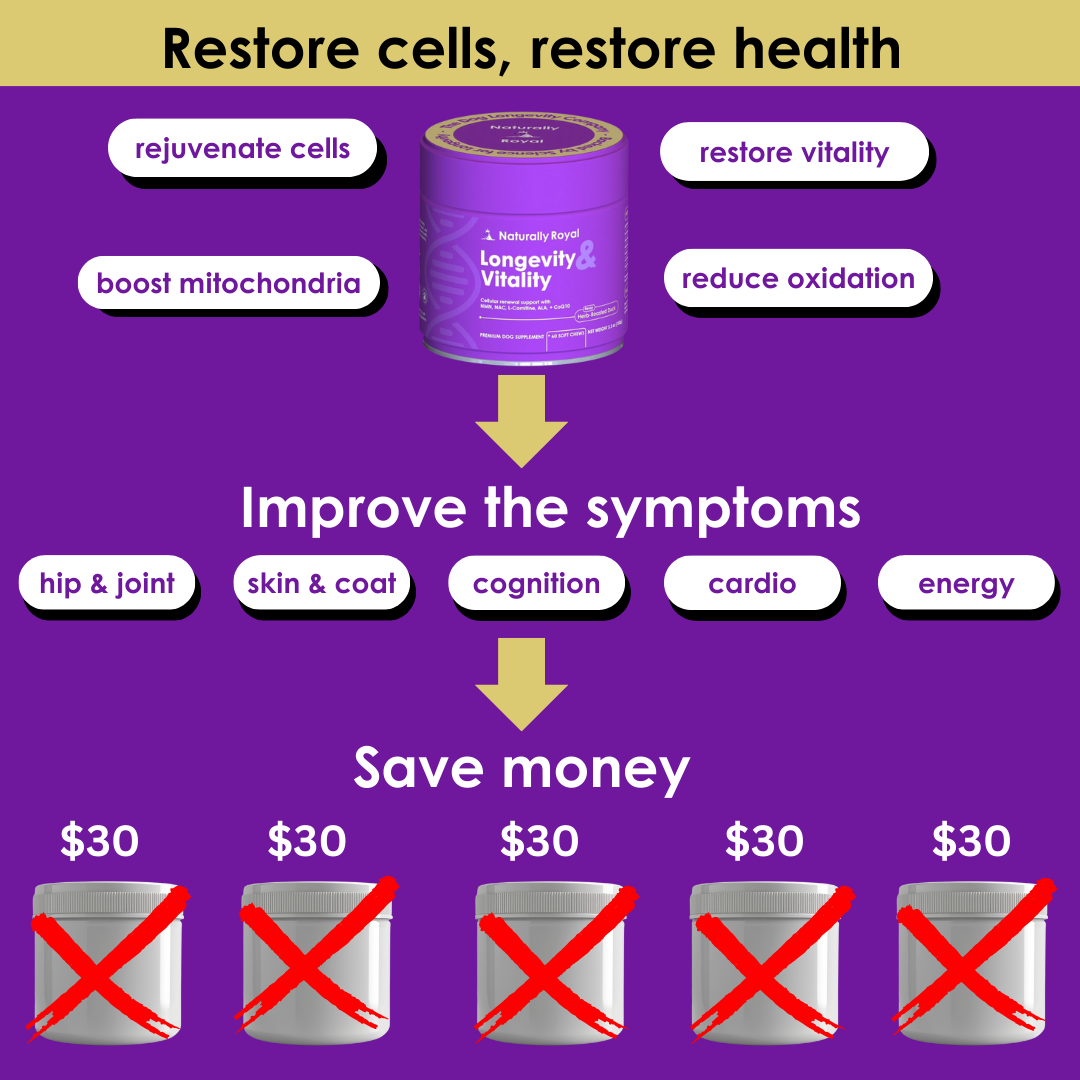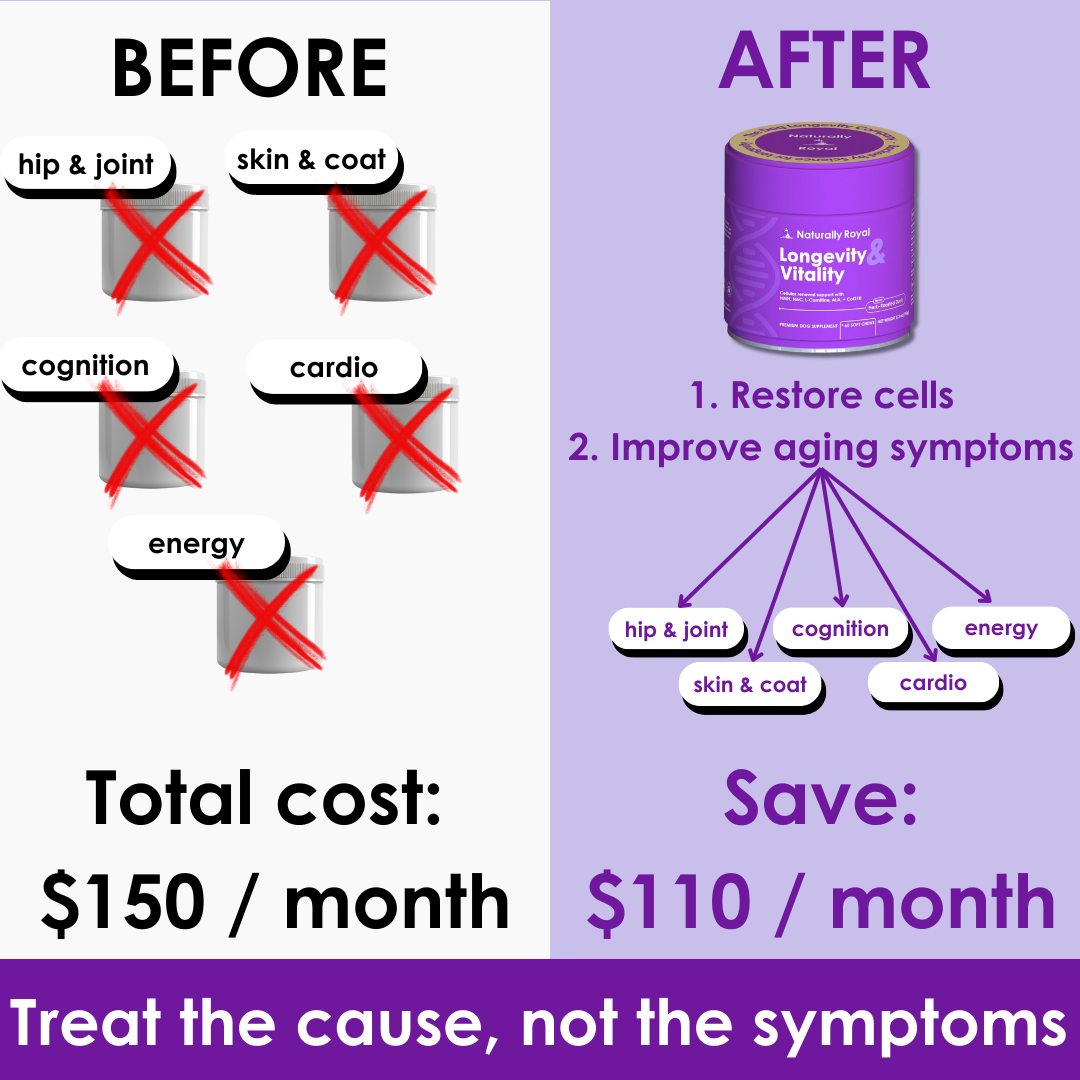10 Hurricane Considerations for Your Dog
With Helene recently passing through the south, and Milton on its way to Florida, let's talk about hurricanes and how we can keep our dogs safe. Hurricanes can be life-threatening not only for humans but also for our pets. As a responsible dog owner, it's essential to have a plan in place to protect your furry family member before, during, and after a hurricane strikes. Here are the top 10 considerations to ensure your dog stays healthy and safe:
1. Prepare an Emergency Kit
Before a hurricane arrives, having an emergency kit ready for your dog is crucial. This kit should include:
- At least a week's supply of food and water
- Medications and veterinary records
- Extra leash, collar, and ID tags
- A blanket and favorite toy for comfort
- Dog waste bags, bowls, and a first aid kit
Longevity Impact: Being prepared with essentials reduces stress and helps maintain your dog’s health, keeping them calm and minimizing disruptions to their routine.
2. Plan for Evacuation
Evacuation might be necessary in the event of a hurricane. Make sure you have a safe place to take your dog. Many shelters don’t accept pets, so plan ahead by identifying pet-friendly shelters, hotels, or boarding facilities. Keep a carrier or crate handy for transportation.
Longevity Impact: Evacuating early and having a secure, safe location ensures your dog isn’t exposed to dangerous conditions like flooding, extreme winds, or injury during the chaos.
3. Prevent Dehydration and Heat Stress
Hurricanes often knock out power, leaving homes without air conditioning. This can lead to heat stress, especially for older dogs or breeds with thick coats. Make sure your dog has access to plenty of clean water and stays in a cool, shaded area to prevent dehydration and heatstroke.
Longevity Impact: Heat stress and dehydration can lead to severe health complications. Ensuring proper hydration and temperature control helps preserve your dog’s well-being.
4. Protect Against Contaminated Water
Flooding is common during hurricanes, and floodwaters are often contaminated with harmful bacteria, chemicals, or sewage. Prevent your dog from drinking or walking through standing water, as it can lead to serious infections like leptospirosis or gastrointestinal issues.
Longevity Impact: Avoiding exposure to contaminated water reduces the risk of life-threatening infections and diseases that could drastically affect your dog’s health.
5. Prevent Anxiety and Stress
Dogs can pick up on their owner’s anxiety, and storms themselves can be frightening for pets. Use anxiety-relief techniques such as creating a calm environment, playing soothing music, or giving your dog a safe, enclosed space. Consider anxiety-reducing supplements or medications if necessary.
Longevity Impact: Chronic stress can affect your dog’s immune system and overall health, so keeping your dog calm during the storm ensures a longer, healthier life.
6. Watch for Dangerous Debris
After the storm, there may be broken glass, sharp objects, or fallen trees in your yard or neighborhood. Be vigilant about where your dog walks or plays to prevent injuries. Always inspect areas before allowing your dog outside.
Longevity Impact: Avoiding injuries or infections from debris keeps your dog safe and prevents long-term complications that could shorten their lifespan.
7. Update Microchip and ID Tags
During a hurricane, there’s always a risk of your dog getting lost. Make sure your dog’s microchip information is up-to-date, and ensure their ID tags have your current phone number. This simple step can be lifesaving if you become separated.
Longevity Impact: Reuniting with your dog quickly after separation reduces stress and health risks associated with being lost, like malnutrition or injuries.
8. Ensure Vaccinations Are Up-to-Date
In the chaos of a hurricane, your dog might encounter other animals or contaminated environments, increasing the risk of exposure to diseases. Ensure your dog is up-to-date on vaccinations, including rabies, distemper, and leptospirosis.
Longevity Impact: Keeping your dog fully vaccinated helps prevent the spread of contagious diseases that could shorten their life.
9. Create a Safe Indoor Space
During a hurricane, windows can shatter, and heavy winds or flying debris can injure your dog. Designate a safe indoor space like a bathroom or basement where your dog can stay during the storm. Make sure it’s away from windows and is comfortable.
Longevity Impact: Shielding your dog from physical harm during the storm increases their chance of avoiding serious injuries, contributing to their overall health.
10. Be Prepared for Post-Hurricane Medical Care
Hurricanes can lead to power outages, reduced access to veterinary care, and contaminated environments. After the storm, monitor your dog for signs of illness or injury, such as vomiting, diarrhea, limping, or lethargy. If you suspect a health issue, seek veterinary care as soon as possible.
Longevity Impact: Early detection of post-storm health issues ensures timely treatment, preventing potentially life-threatening complications from progressing.
Conclusion
Taking these considerations into account before, during, and after a hurricane ensures that your dog remains healthy and safe. Protecting your dog from the immediate dangers of storms and post-hurricane hazards plays a critical role in their long-term health and longevity. By staying prepared and vigilant, you can give your dog the best chance of living a long, healthy life, even through the most challenging situations.


